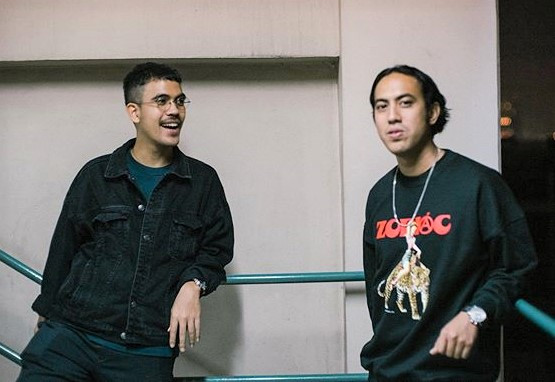Popular Reads
Top Results
Can't find what you're looking for?
View all search resultsPopular Reads
Top Results
Can't find what you're looking for?
View all search resultsMusic royalty rule: Will it really benefit creators and artists?
Musicians and composers are divided about Indonesia’s new music royalty regulation. While some see it as a breath of fresh air that promises peace of mind and a steady source of income, others feel it's simply an attempt by the industry elite to bag one last payday.
Change text size
Gift Premium Articles
to Anyone
W
ith the stroke of a pen, the government sent shockwaves throughout the Indonesian music industry. After a long time in the doldrums, President Joko Widodo finally signed Government Regulation No. 56/2021 on Royalty Management for copyrighted music and songs on March 30, ensuring that composers and musicians get their fair share and resolving the country’s convoluted music royalty rules once and for all.
Read also: Music royalty provisions strike deaf tone among retailers
Or that was the plan. While many welcomed the move as an overdue boon to the nation’s long-suffering musicians and composers, some felt that musicians were not the real winners and instead, that the regulation was simply an underhanded way for industry moguls and veterans to wring every last rupiah from a dying industry under an outdated system.
Officially, the regulation protects a composer's right to receive proper royalties for the commercial use of their music. Public and commercial spaces such as restaurants, cafes, pubs, bars, nightclubs, cinemas, hotels and karaoke venues must now pay a fee to the National Collective Management Agency (LMKN), which will then distribute the fee as royalty to the copyright holder.
Tellingly, the regulation also forms a Music Database Center to be administered by a special general directorate, a move that some say has escaped headlines but will have a more seismic effect on the music industry as a whole.
The regulation was intended to finally give clarity to the nation’s convoluted copyright system. While Indonesia has Law No. 28/2014 on Copyright, it has struggled with enforcing the law, particularly in paying royalties.
According to Hafez Gumay, advocacy manager at the Indonesian Arts Coalition (KSI), one reason for this was the lack of a “unified database to refer to”.
“Not every composer registers their work with the Law and Human Rights Ministry,” said Hafez. “Yes, they’re still protected by the copyright law, but this does mean they have a hard time when there is a legal battle [over] royalties.”
Scattered data: Advocacy manager Hafez Gumay of the Indonesian Arts Coalition (KSI) says that the absence of a centralized database makes it hard to trace copyright ownership and calculate royalty payments. (koalisiseni.or.id/Courtesy of Koalisi Seni)When the data is unconsolidated or incomplete, tracing the real copyright owner of a song and paying the appropriate royalty becomes an uphill battle.
Despite its noble aim, the regulation has drawn the ire of people outside the music industry, who feel that it places an undue burden on many industries already devastated by the pandemic. For example Djonny Syafruddin, the head of the Indonesian Cinema Association (GPBSI), said that the LMKN’s royalty fee of Rp 3.6 million (US$) per screen per year was too high. Syafruddin instead offered to pay Rp 600,000 per screen per year, and asked that cinemas be allowed to pay the fee after the industry had recovered from the pandemic.
Meanwhile, the Jakarta Association of Entertainment Entrepreneurs (Asphija) expressed surprise at the regulation and lamented the fact that it had been enacted while negotiations with the LMKN were ongoing on the proper royalties for nightclubs and karaoke venues.
For some in the music industry, though, the regulation offers a chance for payback.
“This regulation guarantees the welfare of composers who have spent decades under the thumb of TV stations, radio stations, hotels and other commercial spaces that won’t pay royalties,” said journalist Wendi Putranto, who also manages popular metal band Seringai.
“[These places] would even say that they’re giving musicians ‘free promotion’ by playing their songs.”
Many are keen to flip that script, since rather than musicians gaining free promotion, commercial spaces have long benefited from providing ambience by playing their music for free.
“We haven’t truly appreciated the presence of music in public [spaces],” said Noor Kamil, label manager at music aggregator Believe Digital. “A cafe is comfortable not just because of the coffee, but because of the ambience. Music provides that.”
The response among musicians has been mixed and cautiously optimistic at best. While most agree the overdue step is a positive one in the right direction, many are wary of the implications of the suddenly all-powerful LMKN and are doubtful that the regulation will be implemented properly.
Pop queen Krisdayanti, a lawmaker in the current House of Representatives (DPR), lauded the President for “listening to the lamentations of musicians”, but cautioned that the LMKN needed to be transparent about the royalty rate of each public space.
Echoing her is ‘80s pop legend Fariz R.M., who said he had “seen 40 years of regulations, seminars and webinars” on music royalties but was yet to see “a transparent and clear implementation” of any related policy.
Some are even more skeptical. “This regulation is a victory for old players in the music industry, not for musicians and composers,” said keyboardist Randy Danistha of multi-platinum pop band Nidji. “There’s still a lot of gray area between musicians, labels and collective organizations like the LMKN.”
Randy said that many musicians were stuck in lopsided contracts that meant they received only a fraction of the earnings from their music.
“Young bands who are new to the industry will be asked to sign these contracts when they don’t even know much about copyright. And labels take advantage of this by binding them to long-term contracts that sometimes even last a lifetime,” he added.
Unless the government also intervened to resolve the issue of unfair contracts and prevent them in the future, the new regulation would benefit only a select few in the music industry. Labels, music aggregators and the LMKN would rake in most of the money while musicians continued to receive the leftover change.
Despite selling millions of albums and producing at least 10 chart toppers over a career spanning two decades, Randy said royalties accounted for a mere fraction of Nidji’s income.
“Eight-five percent of our income comes from offline concerts,” he said. “Royalties are like pocket money. They’re nice to have, but they won’t pay the bills.”
For Wendi, though, the regulation is a good start, regardless of cost. “It’s not about who wins or loses,” he stressed. “This is the right of every composer and the state’s responsibility. Composers are simply starting to get what they have deserved all along.”













